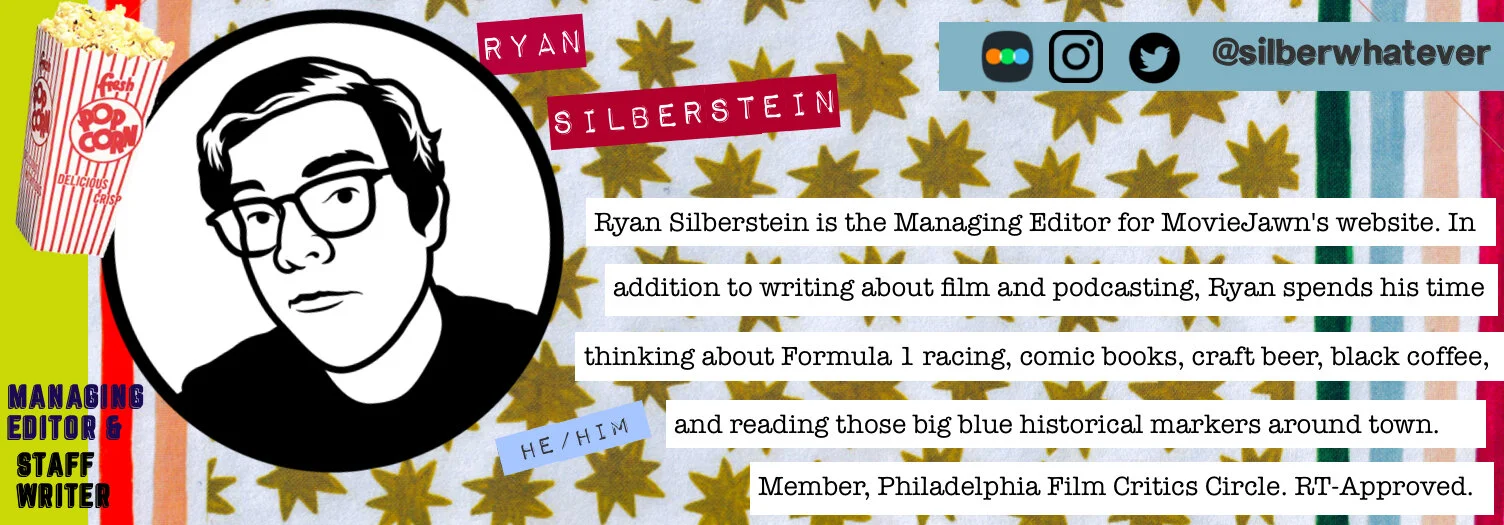“Mucho mistrust, love's gone behind” the HOUSE OF GUCCI
Directed by Ridley Scott
Written by Becky Johnston, Roberto Bentivegna
Starring Adam Driver, Lady Gaga, Jared Leto
Rated R for language, some sexual content, and brief nudity and violence
In theaters November 24
Runtime: 2 hours 37 minutes
by Ryan Silberstein, Managing Editor, Red Herring
Patrizia Reggiani (Lady Gaga) meets Maurizio Gucci (Adam Driver) at a birthday party for one of Maurizio’s friends. Patrizia, the daughter of a transportation entrepreneur, doesn’t know his friend. Maurizio didn’t know it was a costume party, so when they dance, everyone around them is wearing masks, so only their faces are visible–it looks like they are the only ones in the room. Replicating the feeling of being alone in a crowd. Or is it? Everyone else is faceless, their masks white with fanciful designs. They could be mannequins or ghosts just as easily. Both figure into the story of the House of Gucci.
When Patrizia meets Maurizio, her eyes light up at the mention of the name Gucci. For his part, Maurizio is studying to be a lawyer, while his aging father Rodolfo (Jeremy Irons) and uncle Aldo (Al Pacino) are running the family business. Rodolfo dismisses Patrizia as a hold digger, but Patrizia encourages Maurizio to learn the business from his uncle. What follows is a love affair worthy of Hollywood, a fairytale filled with expensive cars, shady accounting, and family intrigue. The scenes early in the film are so vital to having us buy the relationship between Patrizia and Muarizio, and the chemistry between Driver and Gaga is often electric, creating the sense of their relationship as very sexual and mutually empowering. Enabling might be a better descriptor, but the fire between them leaps off the screen thanks to choice uses of close ups and entrancing face acting from both actors.
While positioned as a prestige drama, House of Gucci feels like a throwback to a time where movies could be entertainment meant for adults. Sure there are themes to dig into around the idea of image–and how who you wear is sometimes more important than who you are–but the film’s focus is on bringing us into the world of an Italian family business that became a global brand. This is reflected in the performances, as Driver gives a grounded take on the fashion scion, while everyone around him plays to the rafters. Lady Gaga comes off the best here, as she modulates her performance based on her screen partners. This allows her to give one of the best ‘movie star’ performances of the year, giving a big performance that never loses sight of the humanity within the character. Jared Leto, playing Aldo’s son Paolo, finally achieves his final form as a buffoon (Aldo often calls him, “my idiot”) who believes he has been gifted with great artistic talent.
Sidebar: I am also happy to report that thanks to a brief appearance where the Vogue icon is played by Catherine Walker, House of Gucci is canonically part of the Anna Wintour Cinematic Universe (AWCU), alongside The Devil Wears Prada, The September Issue, The First Monday in May, Zoolander 2, and Ocean’s 8. Wintour is one of the most fascinating public figures, and maybe the one with the most cultural impact despite flying under the radar.
Ultimately what makes House of Gucci such a satisfying experience is the way it rhapsodizes the lifestyles of the rich and fashionable. We live in an age with an increasing wealth gap, and being able to spend time in a world of Gucci, Versace, Audrito, Ferrari, and Lamborghini is a form of movie escapism that allows us to step into the fantasy for a short time. Gucci has all of the intrigue, globestrotting, and sex as a James Bond film, and just as much frivolity. Ridley Scott understands this as well as Aldo Gucci. One of the most humorous sequences in the film has Patrizia discover that their nanny has a Gucci bag. She ruthlessly traces the source of the bag to Canal Street. She brings the samples back to her husband and Uncle Aldo, the elder Gucci shrugs it off. “If a Long Island housewife wants to feel like she is living a Gucci lifestyle, why shouldn’t she?” he retorts. To Patrizia, Gucci is synonymous with exclusivity, the dream of owning “the second least expensive item” in the store an unattainable goal as referenced in the opening narration. But for Aldo, he sees these lower quality bags and wallets sold as ‘knockoffs’–as well as the mugs and other cheap accessories–as brand recognition, a taste of the luxury that Gucci represents. Buying a ‘fake’ Gucci or Louis Vitton isn’t about pretending that you own the real thing, it’s aspirational.
Of course, for Patrizia, everything goes wrong, her schemes and machinations driving the family Gucci apart, but arguably creating the path to the brand’s success even today. It would actually do a disservice to call her complicated. As she says, she does not consider herself an ethical person. It feels only right for Patrizia Reggiani (she is legally not allowed to use the name Gucci) to join the ranks of Henry Hill, Jordan Belfort, and other charismatic criminals. Unstoppable deviants who met the immovable object of their own hubris. But like Goodfellas or Casino, damn is it one hell of a ride.


